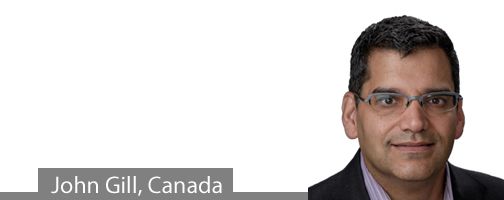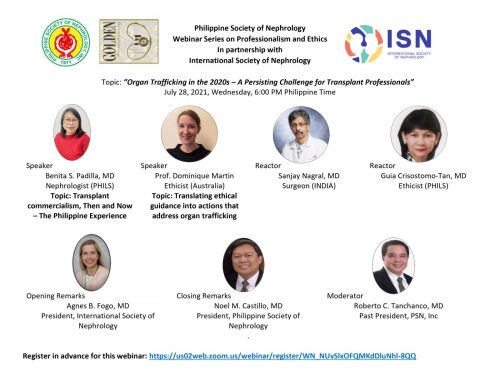Newsletter - September 2021
Welcome to the September issue!
Focus on India!
Welcome to the September Issue of the DICG Newsletter. In this issue, we have decided to focus on recent news articles and publications with a spotlight on India. The articles were written by members of the DICG council. India now performs one of largest number of transplants world-wide. We acknowledge the great strides our colleagues in India have taken to eradicate Organ Trafficking and Organ Comericialism in India as well as promote equity in transplantation. The focus on India is to better understand some of the challenges to ethical transplantation. Our colleagues and endorsing organizations are working hard to improve all aspects of transplantation in India. We encourage discussion and hope that this newsletter will be a catalyst for open discourse.
In The News
We have chosen to highlight a notable article on organ trafficking in Assam, India. Which has been written by DICG members from India. In a leading national daily newspaper.
The DICG has reached out to local government officials, as well as endorsing organizations of the DOI to address the reports. We have recieved a handful of responses and will be following up. We support the ongoing efforts of our colleagues and officials in India who are working to promote ethical transplantation and hold those responsible accountable.
Recent Publications
South Asia Edition

DICG Representation In The 2021 ASHI Hybrid Meeting Program
DICG Co-Chair, Eric Rondeau and Executive Council Member, Maria Amalia Matamoros will be part of a pannel in a session entitled "Challenges and Opportunities in Transplantation Worldwide."
The session will describe the landscape of solid-organ and stem-cell transplantation in different areas of the world (the Middle East, China and India) highlighting the similarities and differences with transplant activities in the West. The speakers will discuss challenges in histocompatibility testing related to multiple areas, including the disease landscape, donor types and availability (related and unrelated), HLA typing, clinical practices, clinical data management and legal, ethical, and social considerations. The workshop will include three 20-minute presentations followed by a 30-minute panel discussion.
ISN-TTS Sister Transplant Centers Program Application Deadline
The ISN - TTS Sister Transplant Centers Program is now accepting applications until October 1st, 2021
The program is a joint partnership between the International Society of Nephrology (ISN) and The Transplantation Society (TTS) who are the parent organizations of the DICG, to help establish new kidney transplant centers and develop existing kidney transplant programs in emerging countries. Please note that the program is open to all ISN and TTS members. This initiative fosters partnerships between experienced transplant centers in the developed world (Supporting Centers or SCs) and new and developing transplant centers (Emerging Centers or ECs) in low-resource regions, providing a framework and funding for up to six years of collaboration if adequate progress is made.
A similar program for liver centers which is a partnership between TTS and ILTS called the TTS-ILTS Paired Transplant Centers Program. This program will be accepting applications later this fall with a deadline of January 1st. More information can be found at TTS-ILTS.ORG
The Philippine Society of Nephrology (PSN) webinar "Organ Trafficking in the 2020s – A Persisting Challenge for Transplant Professionals" Summary

The Philippine Society of Nephrology (PSN) started a webinar series on ethics and professionalism in November 2020. In the seventh session of the series, held on July 28, 2021, the topic was “Organ Trafficking in the 2020s – A Persisting Challenge for Transplant Professionals.” The ISN graciously agreed to co-host this event and Dr. Agnes Fogo gave the opening remarks. This is a particularly relevant topic for the organization because the Philippines was declared an organ trafficking hotspot by the WHO in 2007. Since then, the PSN has been on the forefront of promoting ethical practices in transplantation.
Dr. Benita Padilla, a DICG Council member and past president of the PSN, described how changes in the regulations in the Philippines more than a decade ago successfully turned the tide against organ trafficking but new challenges continue to crop up. The talk of Dr. Dominique Martin, focusing on how ethical principles can be converted to concrete actions, was particularly relevant in suggesting strategies to combat these new challenges. Dr. Sanjay Nagral and Dr. Guia Crisostomo-Tan contributed other perspectives, noting that there are many commonalities in the ethical challenges that transplant professionals in India and in the Philippines have to face.

The DICG Course on Ethical Issues in Transplantation and The Declaration of Istanbul
In case you missed the launch of the DICG Course on Ethical Issues In Transplantation and The Declaration of Istanbul be sure to register! The course was designed to give a complete overview of the DOI. There are three main modules in the curriculum. History of the DOI, 2018 Edition of the DOI and Ethical Issues Related to the DOI. There is also a series of regional updates. While the Modules are all available at this time, periodically, there will be updates and additions to the content.
The course is free and open to all participants who want to learn about ethics in transplantation, the DOI and the DICG. Upon completion, all participants will be eligable for a certificate.
Please encourage your colleagues, fellows and trainees to participate!
View Past Newsletters
The newsletter is brought to you on behalf of the executive council of the Declaration of Istanbul Custodian Group which works to protect and promote the principles enunciated in the Declaration of Istanbul(DOI), a landmark document in the history of global transplantation.
